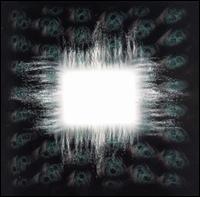
The seven year journey leading up to Jars of Clay’s The Eleventh Hour has seen the tremendous success of a very timid band. They hit it big with their self-titled debut and the ubiquitous “Flood,” and not-deliberately focused all eyes on them for their second album, Much Afraid. Four years later, they are in a much more comfortable place musically and socially. 1999’s If I Left the Zoo alienated a few fans with its daring originality, and with The Eleventh Hour they are hoping to win them back.
From note one, it is apparent that this is a wiser Jars of Clay, but an edgier one as well. The gorgeous rocker “Disappear” beautifully combines a heavenly-minded sense of wonder and joy with a hard-driving beat that doesn’t let up for an effect that has you bobbing your head uncontrollably. The third track, “Revolution,” is a challenge to the Christian bubble that so many people live in, but also to mindless music that so many people get trapped by. The prevalence of electric guitars on this album on the whole increases its hard rock appeal, and brings Jars of Clay from “Christian band with a hit single” to “hit band with a Christian message.”
Even though they have become a little more mainstream, that has not softened Jars of Clay’s originality and uniqueness, either lyrically or musically. If anything, they benefit from being less overtly Bible-thumping than other bands. Jars of Clay are not a “message” band. While there are plenty of good, even brilliant “message” bands out there (Third Day, the Newsboys, and PFR come to mind), Jars of Clay have focused more on the music and making it good and worthwhile, and consequentially have increased their fan base.
Obviously, this approach is working, since The Eleventh Hour is their best work yet. Not only is it musically mature and sophisticated, but its lyrics continue the honesty and forthrightness that has marked their entire career. Take “Silence,” for example. This is a very melancholy song about the despair that a Christian feels when God seems very far away. Christian bands, as a whole, tend to put rose-colored glasses on their audiences, singing only about the good times. Instead of shying away from difficult issues, Jars of Clay tries to deal with them in a very frank and poetic way.
The Eleventh Hour is a bit grittier and louder record than their other releases, but they wear it well. Even so, they are doing grit and loudness on their own terms. As one of the most successful Christian acts of the past 20 years, they have clearly gotten better with age, and will only get better. And if they don’t, they will certainly get more interesting.
Prime Cuts:
Disappear
Silence
Fly
The Eleventh Hour
22 Rating: 19






